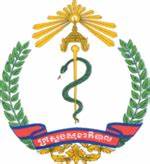Issue Description
Cambodia has strict processes in place for the registration of pharmaceutical products, which mandate detailed technical specifications of both the product and its packaging to ensure safety, effectiveness, and quality. Only products that match the specifications registered with the Ministry of Health (MoH) can be imported into Cambodia. However, some pharmaceutical distributors circumvent these requirements by importing products falsely under the registration number of an authorised distributor or products that have avoided registration and testing entirely. As these products have not received import permission from the Ministry, they should be illegal for sale in Cambodia.
The registration process has become increasingly digital, with the launch of the Cambodia Pharmaceutical Online Registration System (CamPORS) in 2019, which is meant to be a digital one-stop window to register the import and use of pharmaceutical products in the country. However, unregistered products can still originate from the authorised manufacturer and meet some of the product specifications, but they nonetheless pose health risks when transported by an unofficial entity into Cambodia. Manufacturers take climatic conditions into account when designing their packaging and regularly modify their packaging for specific countries for added protection. Cambodia has a tropical climate and many of its pharmacies are not climate-controlled, requiring packaging to be adapted to prevent pharmaceutical products from spoiling in the heat.
In order to ensure that products are transported and stored under the right conditions, manufacturers require their distributors to undergo stringent audits and selection processes. Distributors that deliver products without being appointed by the manufacturer will not have undergone such controls and cannot ensure the products are safe once they reach patients. Another fundamental aspect of pharmaceutical safety is pharmacovigilance, in which a manufacturer is notified in case of an “adverse event” occurring within the market. Adverse events are negative experiences relating to the use of a pharmaceutical by a patient and are reported to manufacturers by distributors to take proactive precautions to ensure patient safety.
However, unregistered product distributors are not appointed by a manufacturer and will not report such events, increasing the likelihood that harmful pharmaceuticals will remain in distribution. EuroCham’s Healthcare Committee supports affordable treatments but emphasises that unregistered products are not a viable solution as they enter the market at cheaper prices by circumventing testing conducted by the National Health Products Quality Control Centre and the manufacturers’ pharmacovigilance processes.
While Cambodia’s existing regulations do not allow distributors the right to exclusive distribution of pharmaceuticals, to our knowledge, these regulations also do not allow the entry of products that are a variation of a registered pharmaceutical product. Companies distributing pharmaceuticals are required to apply for a variation when a registered product has been modified to ensure that its registration details are accurate and the modified variety is safe. Weak detection of unregistered products entering the market creates vulnerabilities in the distribution chain, increasing the likelihood of counterfeit and sub-standard products entering the market. Trust is reduced as there are no controls in place to certify that the active compounds match what the seller claims.
Impact on business
EuroCham’s primary concern on this issue is patient safety rather than the impact on revenue. Unregistered pharmaceutical products represent a serious health risk to the Cambodian population as there are no means of assuring the quality of such products. The average consumer cannot be expected to have the technical knowledge to determine whether a pharmaceutical product is spoiled or not due to inappropriate transportation or packaging, therefore responsibility must fall upon regulators to provide quality assurance through effective management of all imports.
In cases where an unregistered product is legitimate, the product manufacturer will have already registered the sale in another country and therefore does not incur any financial loss as a result of unauthorised importing. However, in the longer term, a higher presence of unregistered products in the market is likely to discourage investment by multinational pharmaceutical companies in the domestic economy. If the Cambodian subsidiary is unable to record a suitable financial performance due to lax import controls, they are unlikely to be granted a budget for activities such as education and training for patients and healthcare professionals.
Recommendation
- Protect consumers from the adverse effects of unregistered pharmaceutical products.
Our recommendations are aimed at protecting the safety of consumers of pharmaceutical products in Cambodia from the potential adverse consequences of either counterfeit or unauthorised imports. We respectfully recommend that:
- The Ministry of Health (MoH) upgrade its mandatory packaging and labelling requirements for imported and distributed pharmaceutical products into Cambodia to include a 2D scannable barcode, similar to the provisions contained in the 2019 EU Directive and in accordance with international best practices in the health industry. The MoH should also consider introducing a future requirement for anti-tamper devices to be included in the packaging;
- The MoH consider the adoption and implementation of a full national electronic track and trace system, linking all points in the supply chain of imported pharmaceuticals (General Department of Customs and Excise, Cambodia Pharmaceutical Online Registration System, MoH/Department of Drugs and Food, pharmacies and hospitals, distributors), in accordance with best international practices (e.g. the Turkish system). The MoH should put in place provisions to regulate (including a grace period) the future mandatory electronic reporting and verification of pharmaceutical products along all points of the supply chain, from registration on the Cambodia Pharmaceutical Online Registration System to distribution to patients in pharmacies and hospitals.
- The MoH consider electronically linking pharmacies, hospitals, and distributors of pharmaceutical products to the Cambodia Pharmaceutical Online Registration System to pilot more effective ways to recall or decommission products.
- The General Department of Customs and Excise strengthen its inspections of cold chain storage facilities of pharmaceuticals entering the country to ensure compliance with the specifications registered on the Cambodia Pharmaceutical Online Registration System.
- The Royal Government of Cambodia incentivise the country’s private sector to take a more active part in enhancing the safety of pharmaceutical products by considering the introduction of mandatory liquidated damage clauses to make pharmaceutical distributors legally liable in case pharmaceutical manufacturers can prove in court that products circulating on the Cambodian market are of significant sub-standard quality compared to their specifications on the Cambodia Pharmaceutical Online Registration System. The renewal of pharmaceutical distributor licences should be contingent upon a clean record.
Through these measures, consumers can be more assured that the pharmaceutical products they are purchasing are safe, effective, and of high quality. This can reduce the risk of adverse health effects resulting from the use of substandard or counterfeit pharmaceuticals, ultimately improving public health outcomes. Additionally, such measures can increase confidence in the Cambodian pharmaceutical market, making it a more attractive destination for investment by multinational pharmaceutical companies and promoting economic growth.
Royal government of Cambodia
Initiative from Eurocham: The issue has been raised by the Healthcare Committee within The White Book edition 2024 in the Recommendation No. 43.

On March 12th, 2025. the Ministry of Health invited EuroCham Cambodia and several stakeholders to a consultation workshop regarding the first draft of the Law on Pharmaceutical Products. The latest proposal includes multiple provisions to ensure the safety of imported pharmaceuticals, such as pharmacovigilance standards, import licenses, and storage conditions.
National Counterparts

Ministry of Health

General Department of Customs and Excise

